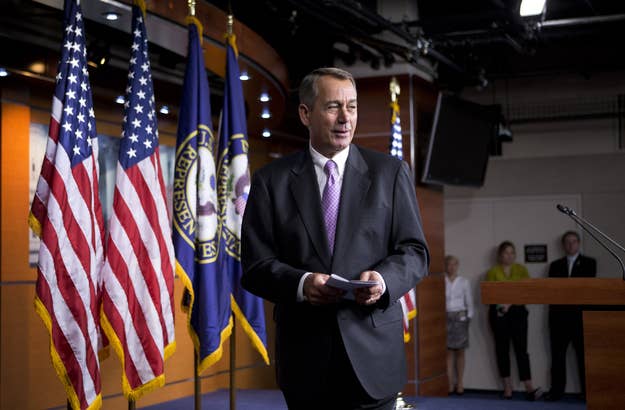
Washington, D.C. — Congress slunk out of Washington in the wee hours of the morning Saturday after both chambers passed a six-month stop gap spending measure—ending one of the worst two-year stretches of congressional action in modern history.
Since the dramatic 2010 elections that swept Republicans into power in the House, Congress has been a virtual standstill, with neither party moving far off its hard ideological positions.
Indeed, the "fight" over the six-month spending bill — the passage of which was never in doubt — was a fitting end to the 112th Congress' regular session, highlighting the inherent dysfunction that has crippled the government.
Senate progress was blocked for days by Sen. Rand Paul, who pushed a measure to suspend aid to countries that did not cooperate with the U.S. in investigations into attacks on its embassies and consulates. That measure, which was was shot down on a 10 to 81 vote, never had any chance of passing. But as with most of the activity of the last two years on Capitol Hill, political messaging was the order of the day.
Indeed, the votes marked the end of lawmakers' two-week sojourn on the Hill, which was used for political posturing, grandstanding — and not much else.
Predictably, Democrats blamed Republican leaders in the House for the inability of Congress to make progress on a farm bill extension, changes to the so-called "sequester" that will impose steep cuts to defense and domestic spending, and the expiration of the Bush-era tax cuts.
On the steps on the House side of the Capitol on Thursday morning, House Minority Leader Nancy Pelosi ticked off the pieces of legislation that have not yet been passed by Congress.
"We’re here standing together to recognize that since Aug. 3, when Congress adjourned, and Nov. 14, when we’re being called back into session, we will have been in session only eight days," Pelosi said. "That’s just not right."
For their part, Republicans were equally on-script, arguing that Senate Democrats had let die bills passed by the House GOP.
House Speaker John Boehner insisted that the House's repeated votes to repeal the Affordable Care Act, curtail new federal regulations, and scale back spending proved Republicans had come to Washington to work.
"Instead of them having this demonstration on the House steps, maybe they should have had it on the Senate steps," Boehner said.
"Where is their responsibility? Where is their leadership? It just doesn't exist," he said of Senate Democrats.
Such talking points will likely supplement stump speeches on the campaign trail, as this week marked the last chance for lawmakers facing reelection to support policies that might fare favorably with voters.
The real test for the 112th Congress will come in November when lawmakers during the lame-duck session will face looming cuts to defense spending, expiring tax cuts, and the need to drastically cut federal spending to avoid another debt-default crisis.
